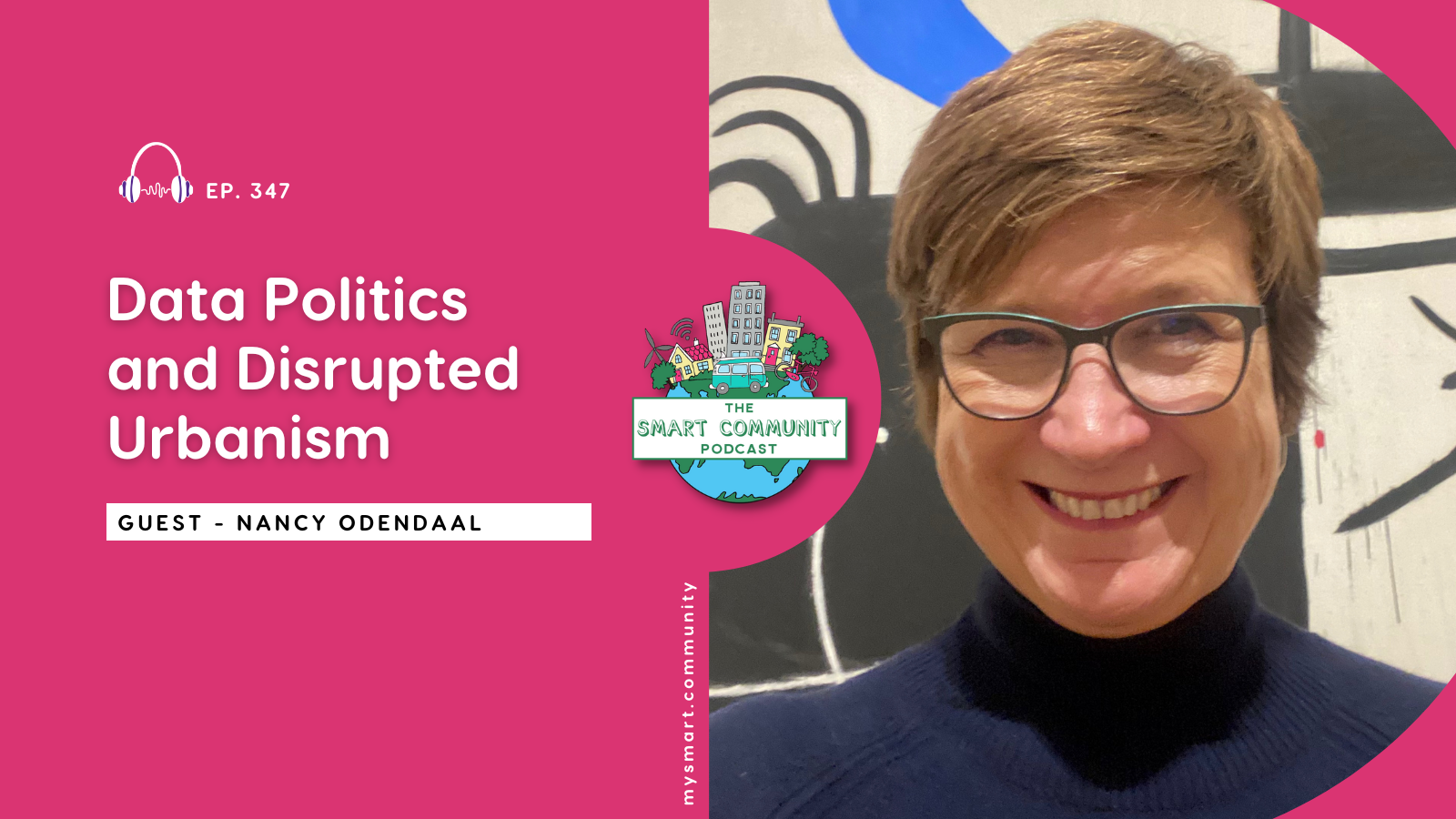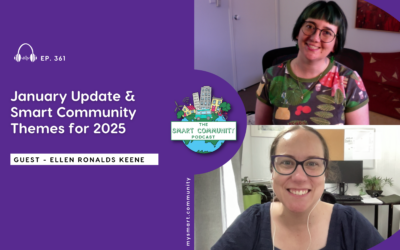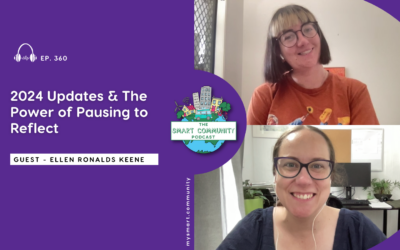Hi #SmartCommunity friends! In this episode of the Smart Community Podcast I have a brilliant conversation with Nancy Odendaal, who you may remember from way back in Episode 3 (back when we were still called the Smart City Podcast).
Nancy is Professor of City and Regional Planning at University of Cape Town and has been in this city space for decades. In this episode, Nancy and I discuss what Smart Community means to her and her research in Cape Town during the pandemic. We talk about data politics and how they relate to the city, city systems and infrastructure management.
Nancy then tells us about her book, ‘Disrupted Urbanism: Situated Smart Initiatives in African Cities’, why she wrote it and some of the lessons from it. We discuss the importance of co-designing and co-creating the Smart City with the community, and the emerging trends of interpreting AI from a more localised community perspective.
We finish our chat discussing the move towards a hybrid of old-fashioned offline community approaches combined with technological solutions as the next step in Smart Communities. As always, we hope you enjoyed listening to this episode as much as we enjoyed making it.
Listen here:
What we cover in this episode:
- Nancy’s background and why she’s passionate about cities
- What a Smart Community means to her
- Nancy’s research on Smart Communities in Cape Town during the pandemic
- About data politics and how they relate to the city, city systems and infrastructure management
- Some of the lessons from Nancy’s book ‘Disrupted Urbanism: Situated Smart Initiatives in African Cities’
- Why Nancy wrote the book and why it’s important
- The problem with the way the “ideal” Smart City is projected in the media, by governments and multi-national tech companies
- The importance of co-designing and co-creating the Smart City with the community
- How the general population ask different questions about technology when co-creating
- The emerging trends of data politics and storytelling as a form of communication, and of interpreting AI from a more localised community perspective
- The move towards a hybrid of old-fashioned offline community approaches combined with technological solutions as the next step in Smart Communities.
Quotes:
“I’m passionate about cities. I love walking cities, I love studying cities, I love getting under the skin of cities. And I love the way that information technology tools, or just smart platforms have enabled us to see different dimensions of the city emerge.”
“To me, a Smart Community is obviously a connected community, it’s a community that contains members that are in touch with each other on an ongoing basis. And it can be issue based, it can be simply because of geography, e.g. people living in one street and looking out for each other. But Smart technologies have enabled us to expand the geographic reach of community to span geographies and space.”
“I think the move to data politics as an area of research is going to be very interesting in that regard. How communities use data to mobilise and to work towards social justice…it focuses on the politics of data. Who collects data, who processes it? How does it get represented? And in the way that it gets represented, whose interests does it serve? Does it tell the whole story or actually, is it quite selective in the story that it tells?”
“There’s also the kind of institutional space where data can be used to reinforce a particular political stand….And a really important debate to have, especially as we start talking about AI more. And, you know, sort of what data gets fed into a model? …they’re interesting ways in which we can kind of look at the relationship between data and artificial intelligence and political ideologies.”
“So the book is essentially a consolidation of a lot of work that I’ve been doing over the last 5-8 years. It’s called ‘Disrupted Urbanism: Situated Smart Initiatives in African Cities’ and essentially, what I do is I look at digital platforms, and how they’re used as a resource, but also how they are created in several African cities. The premise of the book is essentially, the question ‘if Smart Cities are so great, and if they’re touted as being the solution for just about everything, what do they promise? And do they deliver on their promises?”
“The problem with the Smart City as it’s projected in the media, and also often by many governments, is that it’s an idealised, end-result-focused look at the so called ideal city. In terms of being quite frictionless, everything works according to centrally organised system. It’s portrayed as a nirvana of sorts. This frictionless utopia, full of shiny buildings, and of non interrupted infrastructure.”
“The other thing about this notion of the Smart City that works as a package is that there’s also a general assumption that it will work the same way in different places. I think there’s a sort of placelessness to that that I’ve always found very disturbing, and I’m not the only one that does..”
Books mentioned:
- Book: ‘Disrupted Urbanism: Situated Smart Initiatives in African Cities’ by Nancy Odendaal
- Book: ‘Data Feminism’ by Catherine D’Ignazio and Lauren F. Klein
- Book: ‘Invisible Women: Exposing Data Bias in a World Designed for Men’ by Caroline Criado-Perez
- Ayona Datta and Diganta Das writing about the Indian Smart City movement
Connect:
Connect with Nancy on Facebook, Instagram at @nomadicnancy Instagram or via email
Nancy.odendaal@uct.ac.za
Connect with me via email: hello@mysmart.community
Connect with My Smart Community via LinkedIn or Twitter and watch on YouTube
Podcast Production by Perk Digital






0 Comments